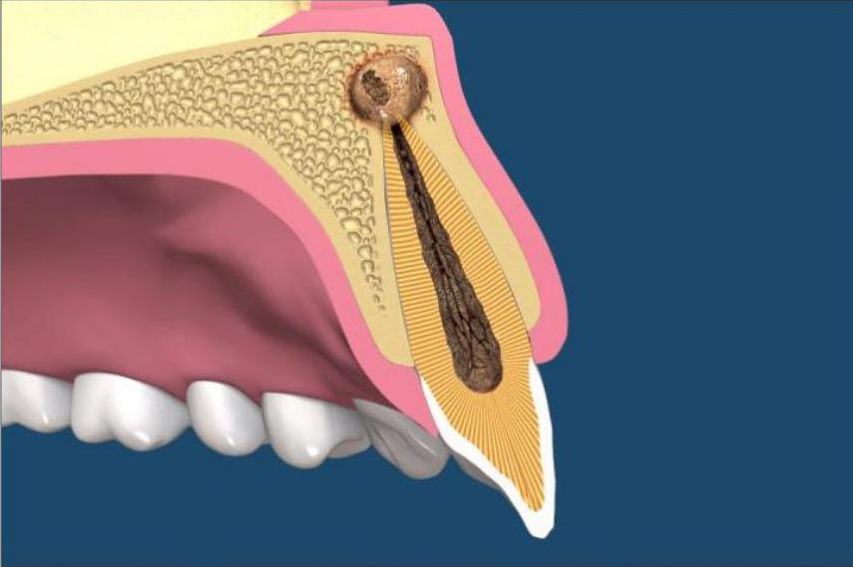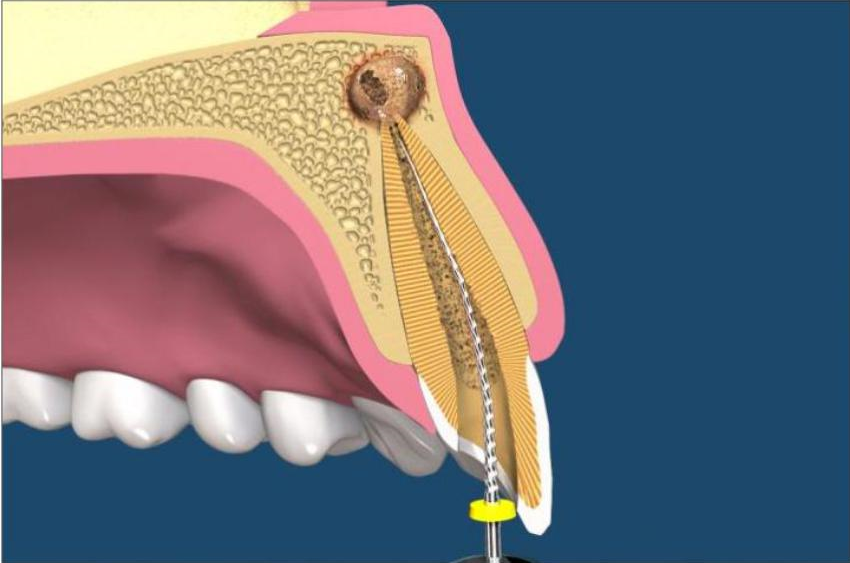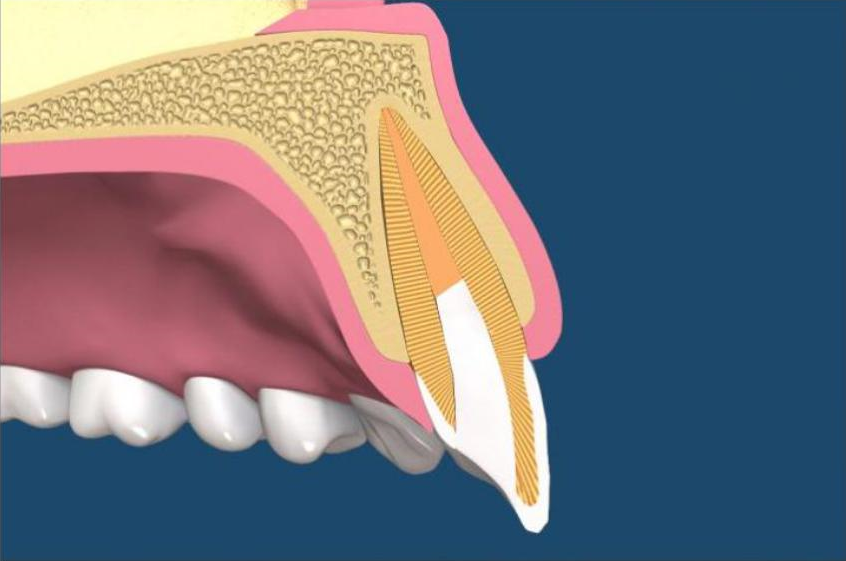
Root Treatment
Root Canal Treatment (endodontic treatment) is a treatment that aims to treat dental infection within the root or the area surrounding the root.
Root canal treatment will be suggested by your dentist when:
- The nerve has become irreversibly inflamed, classic toothache (the nerve cannot recover from this and will subsequently die)
- The nerve has died and there is signs of infection/pathology associated with the tooth
- You have signs or symptoms of a dental abscess
- In order to repair your tooth we need to use the root canal to place a post to support your filling, or more commonly a crown
If you develop or have had toothache it is important you contact your dentist for an examination. If your dentist diagnoses irreversible inflammation of your nerve or a dental abscess you have two options- removal of the tooth (and therefore the infection) or performing root canal treatment (which removes the source of infection)- antibiotics are not effective for treating infections associated with teeth. Root canal treatment if done well with no obstacles can be very successful, survival rate after 10 years is approximately 80-90%.
Infected Root Canal

Canal Disinfected And Cleaned

Canal is filled and then the tooth is restored to a functional unit

Over the time the tissues surrounding the tooth heal

Root canal treatment has a bad reputation and many people associate it with pain, however in most cases this is not the case! Modern local anesthetics and techniques result in the vast majority of root treatment procedures being painless, it is no more uncomfortable than having a filling.
Root treatment requires skill and can take between one and two visits. The tooth is numbed, then a cover is placed over your tooth to keep the root canal free from contamination via saliva, the root canal is cleaned from the top to the base and the length of your tooth is checked. The tooth then may be temporarily dressed, when we are sure the infection has settled, we will fill the root canal. Teeth that have had a root treatment have been weakened, due to previous decay/fillings/fractures and having the root treatment, it is recommended that back teeth are restored with something that provides reinforcement to the cusps of the teeth to protect against fractures and to provide a seal for the root treatment.
We offer root treatments on the NHS and privately- root treatments on back teeth under the NHS will be filled with a silver-coloured (amalgam) filling or if required a metal crown (silver-coloured) will be provided. If you opt to have your root treatment privately we are able to use more sophisticated tools and have more time to allow the root canals to be as disinfected as possible, which can ultimately lead to a greater chance of success, once completed we have a greater choice of how we can restore the tooth.
Root Treatment
Root Canal Treatment (endodontic treatment) is a treatment that aims to treat dental infection within the root or the area surrounding the root.
Root canal treatment will be suggested by your dentist when:
- The nerve has become irreversibly inflamed, classic toothache (the nerve cannot recover from this and will subsequently die)
- The nerve has died and there is signs of infection/pathology associated with the tooth
- You have signs or symptoms of a dental abscess
- In order to repair your tooth we need to use the root canal to place a post to support your filling, or more commonly a crown
If you develop or have had toothache it is important you contact your dentist for an examination. If your dentist diagnoses irreversible inflammation of your nerve or a dental abscess you have two options- removal of the tooth (and therefore the infection) or performing root canal treatment (which removes the source of infection)- antibiotics are not effective for treating infections associated with teeth. Root canal treatment if done well with no obstacles can be very successful, survival rate after 10 years is approximately 80-90%.
Infected Root Canal

Canal Disinfected And Cleaned

Canal is filled and then the tooth is restored to a functional unit

Over the time the tissues surrounding the tooth heal

Root canal treatment has a bad reputation and many people associate it with pain, however in most cases this is not the case! Modern local anesthetics and techniques result in the vast majority of root treatment procedures being painless, it is no more uncomfortable than having a filling.
Root treatment requires skill and can take between one and two visits. The tooth is numbed, then a cover is placed over your tooth to keep the root canal free from contamination via saliva, the root canal is cleaned from the top to the base and the length of your tooth is checked. The tooth then may be temporarily dressed, when we are sure the infection has settled, we will fill the root canal. Teeth that have had a root treatment have been weakened, due to previous decay/fillings/fractures and having the root treatment, it is recommended that back teeth are restored with something that provides reinforcement to the cusps of the teeth to protect against fractures and to provide a seal for the root treatment.
We offer root treatments on the NHS and privately- root treatments on back teeth under the NHS will be filled with a silver-coloured (amalgam) filling or if required a metal crown (silver-coloured) will be provided. If you opt to have your root treatment privately we are able to use more sophisticated tools and have more time to allow the root canals to be as disinfected as possible, which can ultimately lead to a greater chance of success, once completed we have a greater choice of how we can restore the tooth.

